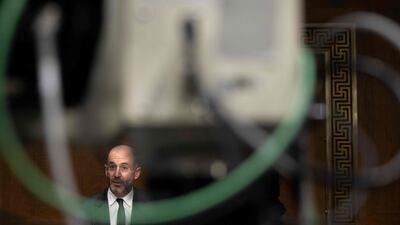Iran’s deputy foreign minister and top negotiator Ali Bagheri Kani led a delegation to the Qatari capital of Doha on Tuesday before indirect talks between Tehran and the US aimed at reviving a landmark nuclear deal.
Iran’s ambassador to Doha, Hamid-Reza Dehqani, on Twitter welcomed the arrival of the negotiating team and wished success for them, the official IRNA news agency reported.
Earlier in the day, US special envoy Robert Malley held talks with Qatar's Deputy Prime Minister and Foreign Minister, Mohammed bin Abdulrahman Al Thani, in Doha.
The talks aim “to discuss the strong partnership and our joint diplomatic efforts to address issues with Iran,” the US embassy in Doha said on Twitter.
The US-Iran talks, due to take place this week, will be separate from broader EU-mediated negotiations in Vienna between Iran and major powers which have been going on for more than a year.
The 2015 nuclear deal has been hanging by a thread since 2018, when former US president Donald Trump unilaterally withdrew from it and began reimposing harsh economic sanctions on key sectors of Iran's economy.
Those sanctions were in addition existing trade restrictions on businesses linked to the Islamic Revolutionary Guard Corps (IRGC), a paramilitary force widely accused of supporting terrorists across the Middle East.
US President Joe Biden's administration has sought to return to the agreement, saying it would be the best path ahead for stable relations with Iran, although the US government has voiced growing pessimism in recent weeks.
The talks in Doha will take place indirectly — with the delegations in separate rooms, communicating via an intermediary. The US and Iran do not have diplomatic relations.
Sheikh Mohammed also discussed the Iran talks with his French counterpart Catherine Colonna in a phone call on Tuesday, the official Qatar News Agency said.
Qatar's foreign ministry said it hoped the “indirect talks will be culminated in positive results that contribute to the revival of the nuclear deal signed in 2015".
Talks to revive the nuclear deal began in Vienna in April last year but hit a snag in March following differences between Tehran and Washington, notably over Iran's demand that the IRGC be removed from a US terror list.


